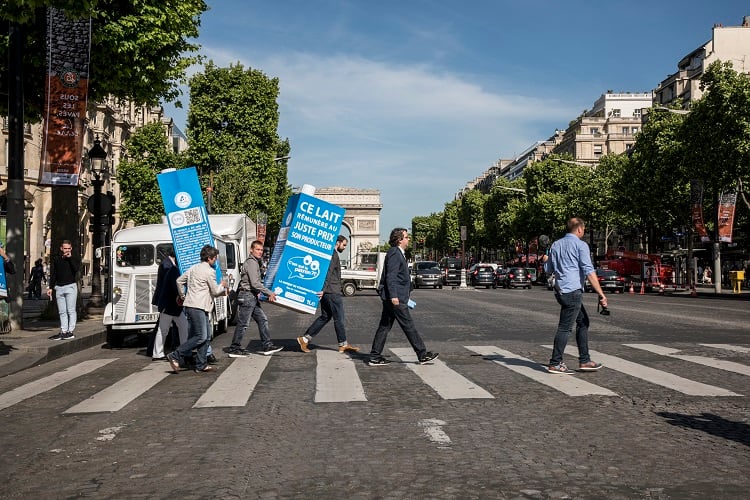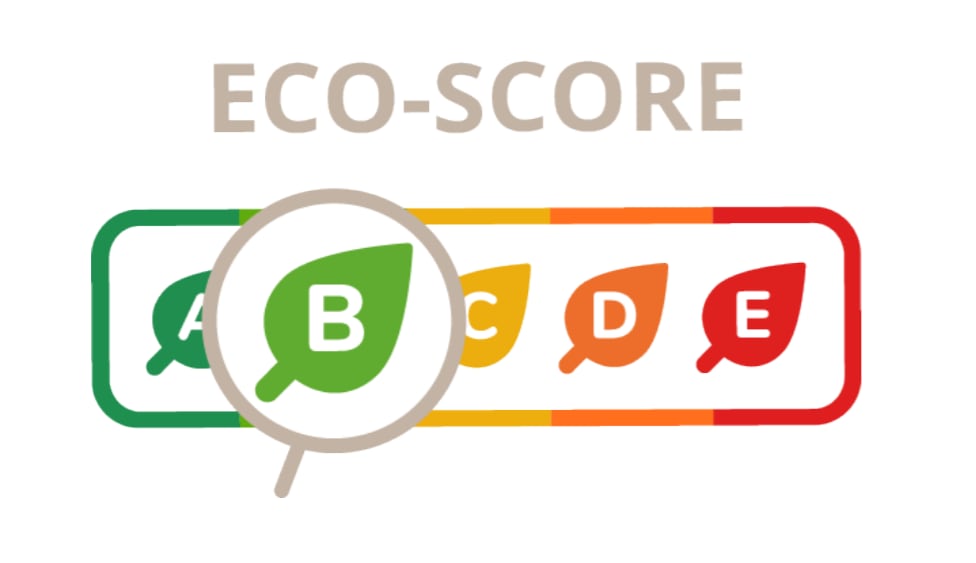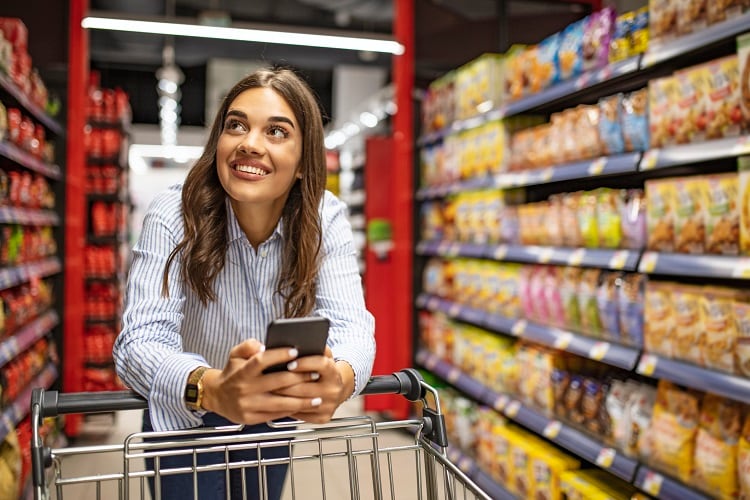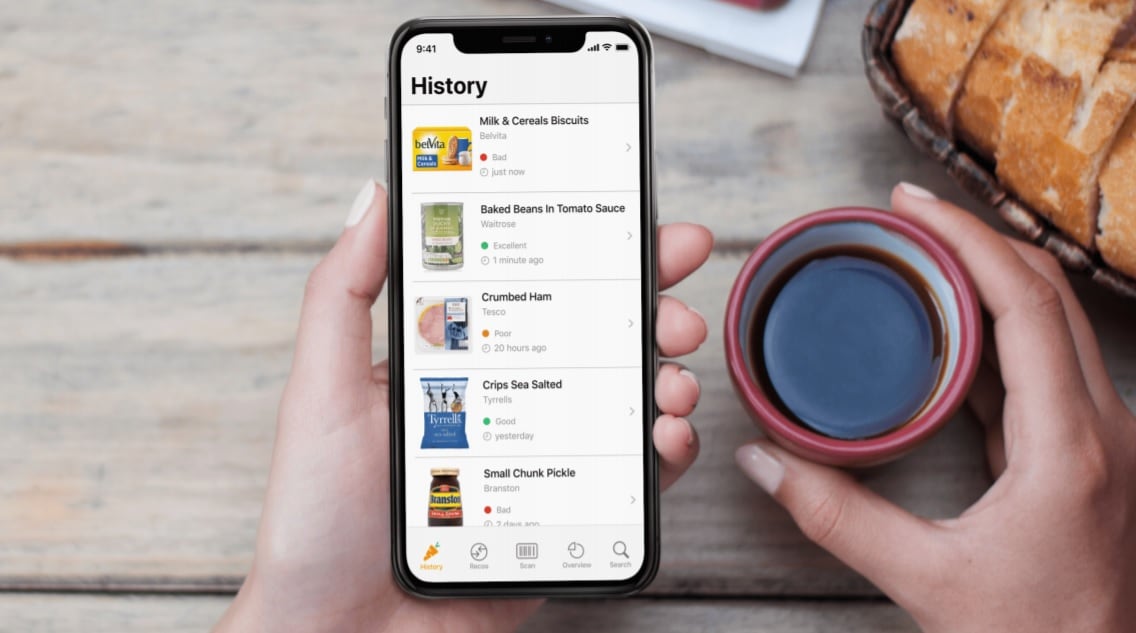At the end of 2014, national milk quotas were abolished across the EU. An unprecedented spike in milk production ensued, resulting in dramatic reductions in milk prices and profit margins.
In France, producers were ‘losing money each day’, recalled Clémentine Perier from food brand C’est qui le Patron: “It was necessary to help them guarantee the price of their milk.”
C’est qui le Patron (CQLP), which translates to ‘Who’s the Boss’ in English, launched in response this ‘milk crisis’.
However, unlike a conventional food and beverage brand, CQLP puts its consumers in the driving seat: asking them to vote on what type of product they want, which production methods they prefer, and the quality they are willing to pay for.
A democratic food company
CQLP is inextricably linked to its community of consumers, which each pay a symbolic €1 for a share in the community-oriented enterprise. In France, membership has grown to more than 10,000.
Consumer shareholders have the right to vote on a wide variety of criteria concerning the products they would like to see on-shelf. How much farmers are paid for they products is a key criterion.
“We decide everything together using consumer surveys,” noted the company. “We know everything about the products we create. With stable and fair earnings, farmers finally make a living out of their work while offering us good quality and sustainable products.”
Unsurprisingly, the first product consumers voted on was milk. “Consumers voted on criteria to choose what kind of milk they wanted to create, they could choose the price of the milk, and the remuneration for the producer,” explained Perier, who together with Benjamin Chartoire is overseeing the collective's international expansion.
From there, CQLP partnered with an industry player – in this case a dairy cooperative – to produce the product according to consumers’ specifications. The result? “Consumers were ready to buy it at the price they already knew, because they set it,” Perier told FoodNavigator.
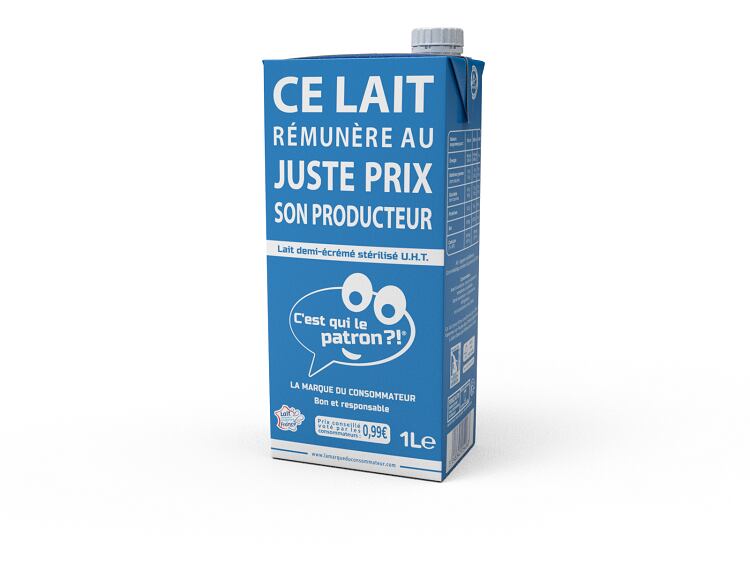
Today, CQLP sells four milk products in France: skimmed 1L, semi-skimmed 1L and 500ml, and full-cream milk. Dairy farmers are paid €0.39 per litre for milk, and CQLP guarantees that less than 0.9% of the cow’s feed comes from genetically modified crops.
Since its 2016 launch, the food and drinks brand has expanded its offering. Its more than 30-strong product line includes honey, apple juice, chocolate, flour, wine, sardines, pizza, yoghurt, chicken, baguettes, and butter – the organic version of which CQLM says is a ‘bestseller in France’.
Demand for consumer-designed products
In France, CQLP products are available to the masses via big name supermarket retailers, including Lidl, Intermarché and Carrefour.
As CQLP’s objective of improving the quality and transparency of the food sector is reliant on consumers’ willingness to purchase its products, FoodNavigator asked Perier what the response has been so far.
Over the past four years, 16m consumers in France have purchased CQLP products, she told this publication. In total, 220m products have been sold, which is 10-times more than the company predicted, and CQLP claims its milk is ‘one of the best-selling’ new brands in the industry. Its eggs are even more popular than the ‘major brands’, having sold 28m eggs in just two years.
And demand is on the rise. An estimated 6.5m households purchased CQLP products in 2020 compared to 5m in 2019, with a total of 49.8% of households making repeat purchases of CQLP products throughout this past year.
International expansion
CQLP is growing, and fast. Its international expansion strategy has seen consumer communities build up in 10 countries to date, including Germany, Spain, Italy, the Netherlands, Greece, Morocco, Belgium and the UK.
Each consumer base votes for the products they want in their country. While preferences differ, an overarching theme CQLP has observed is increased demand for transparency and trust.
“We discovered that consumers are eager to put more transparency on the value chain and to understand how the product is made, how the price is set,” said Perier. “I think the strength of this initiative [concerns] the aspect of fair remuneration.
“In other countries, we see that some criteria are more important. It [could be] animal welfare, or additives and organic criteria. It depends on the country.”
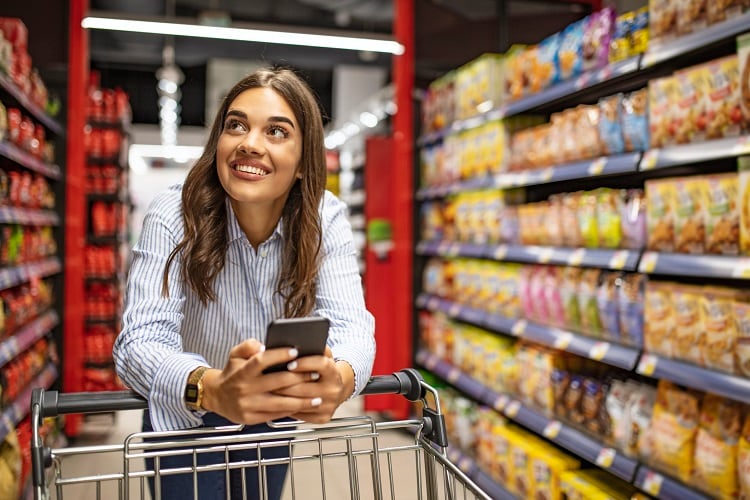
In the UK, where CQLP is marketing itself as The Consumer Brand, surveys are currently open for flour and egg products, with oats, milk, and honey on the horizon.
To develop the flour product, for example, consumers are asked to vote as to whether they would prefer a plain, self-raising, strong white, or wholemeal flour that is made from wheat grown in the EU or UK. They also have the option of selecting genetically modified or enhanced wheat, and specifying the desired wheat cultivation method (Fair to Nature or organic standard).
Concerning renumeration, consumers can vote to pay more, which could allow the wheat farmer to reinvest in his farm or ‘take some time off’. And finally, the type of recyclable paper used in the flour packaging is also up for negotiation: either standard or FSC certified paper.
Beyond the brand
CQLP’s expansion plans also cover non-consumables. The company has developed two smartphone applications to complement its primary operations: the C’est qui le Patron?! app and L’Appli des Consos (the consumers’ application).
The first is designed to help CQLP consumers find their products. It also enables shoppers to ask stores when CQLP products are in stock, and signals their availability to other consumers. “The application helps consumers know where they can buy the product, helps us know where our products are, and to [facilitate communication] between consumers and shops,” explained Perier.
L’Appli des Consos is not dissimilar to food scanning app Yuka, we were told, in that it helps consumers select healthier and more sustainable items in-store.
The primary difference, said Perier, is its personalisation function. Consumers are asked to define their preferences according to 10 criteria: the quality of ingredients, nutritional profile, environmental impact, the provenance of ingredients and manufacturer, values and ethics (fair trade, animal welfare etc.), and price.
When food and drink products are scanned, the app determines whether the item complies with your preferences. To date, the app has catalogued more than 22,000 products, 4,000 companies, 5,200 ingredients, 50 food additives, and 280 quality labels.


